Why Protein Isn’t a Dietary Silver Bullet.
Originally published by STACK.com | August 15, 2013
Check out my STACK Expert profile for more articles on fitness and nutrition. //
Our collective desire for quick fixes makes diet crazes appealing. But although the names may change—Atkins, Zone and, most recently, Paleo—all fad diets tend to have one thing in common: an emphasis on increasing protein intake.
For years, fad diets have demonized healthy fats and carbs, claiming that if you eat too much of these macronutrients, you will get fat. Yet, protein has remained largely unscathed by the mainstream media.
This also holds true for athletes. Lean protein—and lots of it—is considered essential for athletic recovery. Muscle-repairing fats and energy-replenishing carbohydrates are given short shrift.
If you are one who focuses your nutrition on protein, it’s time to listen up.
Protein is an essential part of our daily diet. It constitutes the structural basis of our muscles, skin, nails and hair. There’s no doubt that it’s essential to our well-being. However, it’s not the only important nutrient.
Pick up your favorite fitness magazine, and you will see why our nutrition mindset is biased toward protein. Pages and pages of ads celebrate the latest protein powder or bar, but do you see any ads for products containing carbs or healthy fats? You’d think Americans were suffering from a serious epidemic of protein deficiency.
Fortunately, that is not the case. In fact, most of us—including vegetarians and vegans— get more than enough protein through our regular daily food intake.
For the average person, it’s recommended to consume 0.8 to 1.0 grams of protein per kilogram (pounds / 2.2) of body weight. If you’re an athlete or someone performing high-intensity physical activity (e.g., training for a triathlon or marathon), you should increase your daily protein intake to 1.1 to 1.4 grams per kilogram of body weight.
In other words, an active 135-pound woman should eat around 75 grams of protein per day, and an active 180-pound man should have 140 grams. Anything beyond the amount your body can use will be excreted through urine, so ultimately any excess protein is wasted. And, consuming too much protein may stress your liver and kidneys when converting it to carbs or fat for energy.
So despite its celebrated status, too much protein simply won’t do you any good. Remember also that protein isn’t a miracle food that you can chow down on without the risk of gaining weight. It has just as many calories per gram as carbs.
So, what should you focus on in your diet?
Ideally your daily caloric intake should include 25 to 35 percent fat, 15 to 20 percent protein and 55 to 60 percent carbs. In contrast, the Zone diet calls for a 30:40:30 ratio. That’s double the amount of protein and not nearly enough carbs to fuel your body for quality workouts.
Bottom line: although protein is an important component of a healthy diet, you need to break the mindset that protein is the silver bullet of nutrition. Accept that healthy fats and carbs have a place in your diet, and you will be more likely to reach your fitness and health goals.


